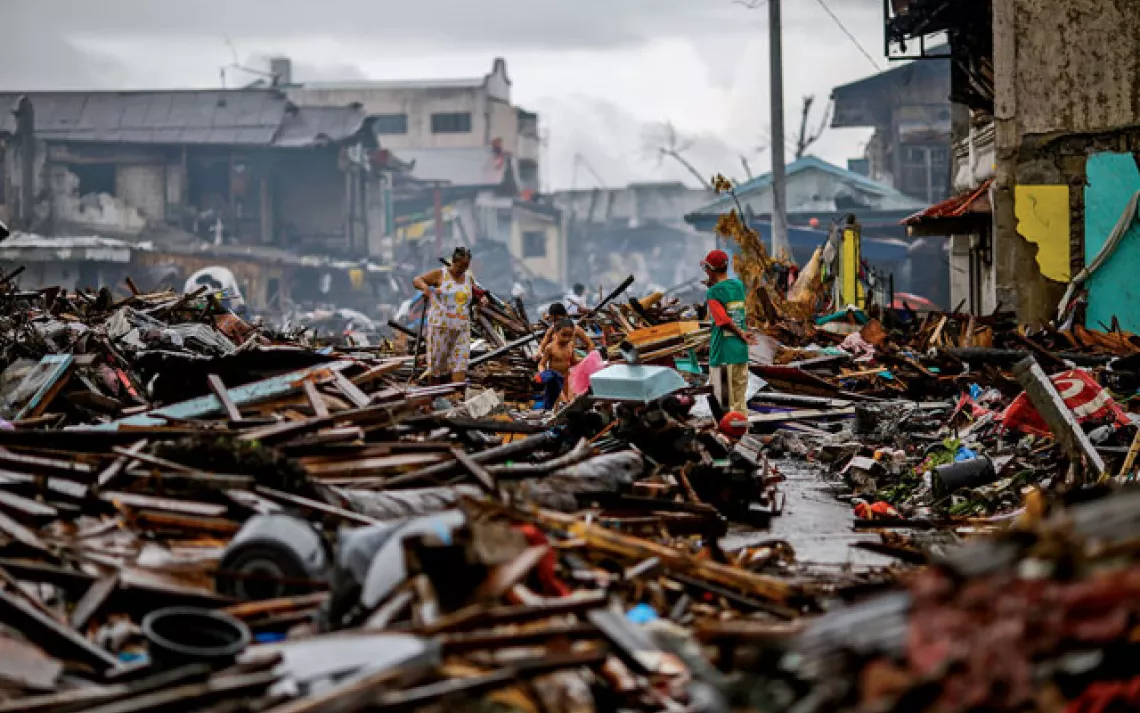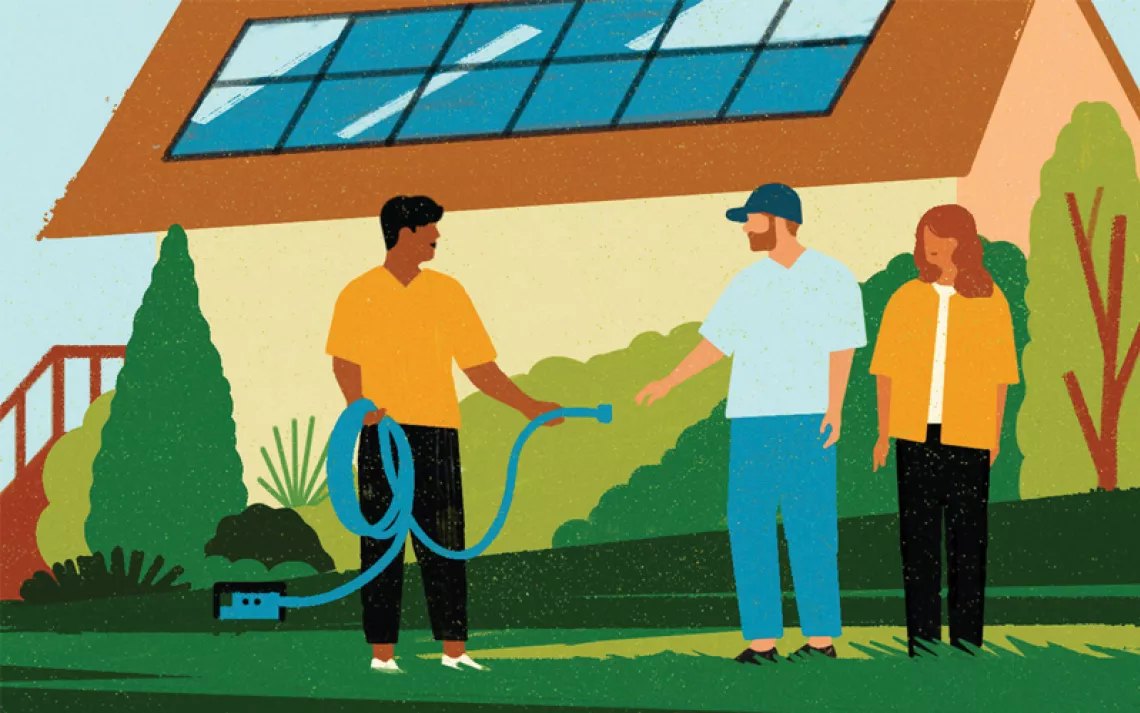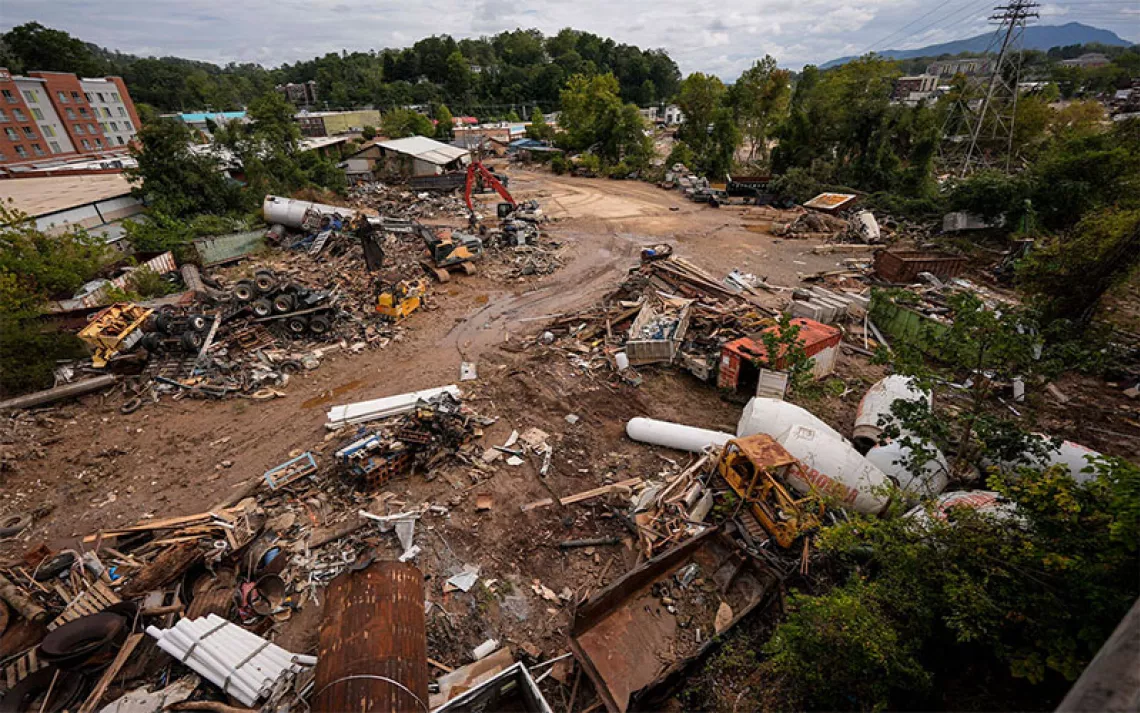Extreme Weather: Who's to Blame?
Time for a climate agreement is running out, and tempers are running short

The aftermath of Typhoon Haiyan in Tacloban, Philippines, which left more than 1.9 million homeless. | Photo by Athit Perawongmetha/Reuters
Just as the world's nations were meeting in Warsaw, Poland, for yet another round of climate talks last November, the strongest typhoon to make landfall in recorded history smashed into the Philippines, killing more than 6,000 people. Philippine delegation head Naderev Sano, whose family comes from the hard-hit city of Tacloban, addressed the delegates. "What my country is going through as a result of this extreme climate event is madness," he said. "We refuse to accept that running away from storms, evacuating our families, suffering the devastation and misery, having to count our dead, become a way of life."
Days later, the talks neared collapse when the Philippines joined other developing nations, plus China, in walking out of the conference. At issue was U.S. and European opposition to establishing a mechanism whereby the rich nations that are largely responsible for the world's cumulative carbon emissions would pay for the "loss and damage" suffered by the developing world as a result of climate change.
A leaked U.S. strategy document said that focusing on "blame and liability . . . could be counterproductive from the standpoint of public support for the conference." The U.S. Senate never ratified the 1997 Kyoto Protocol, largely because it required historical polluters like the United States and Europe to reduce their emissions but asked nothing of China, India, and other rapidly developing countries. A new deal that would allow China—which has now surpassed the United States in carbon emissions—to sue for climate damages would likely fare no better.
Past climate conferences have already agreed that global temperatures must not be allowed to increase more than 3.6°F over preindustrial levels, but a recent study by the U.N. Environmental Programme says that we're missing that mark. Unfortunately, past conferences have also ruled out binding emission targets for any nation, rich or poor.
The Warsaw round ended, as these meetings usually do, with decisions on historical responsibility and emission reductions pushed off to the future. But time is running out. A successor agreement to Kyoto is supposed to be hashed out in Paris in 2015, one that will prevent a catastrophic temperature increase of 6°F to 10°F by the end of the century, which is where we're headed if present trends continue. In that nightmare scenario, "loss and damage" will be general. We will all be in Tacloban.
 The Magazine of The Sierra Club
The Magazine of The Sierra Club



